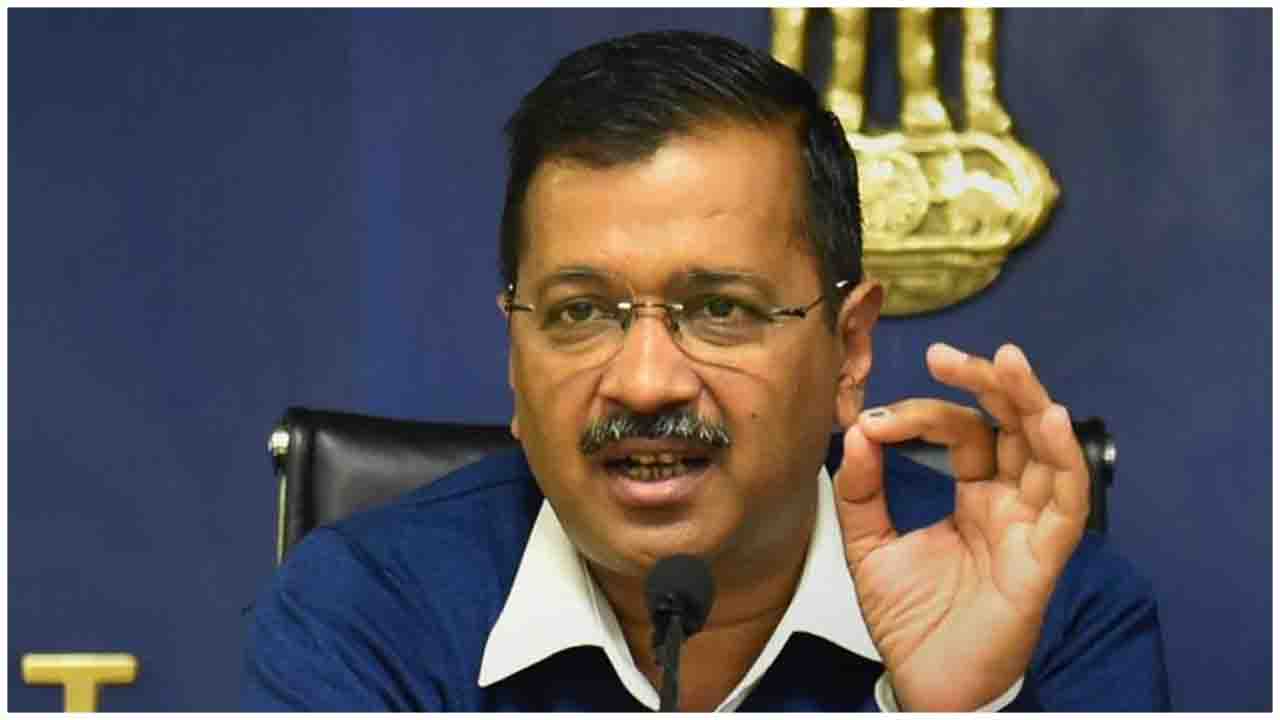According to authorities, Delhi Chief Minister, Arvind Kejriwal's coronavirus test declared him negative and infection free. His investigation was done on Tuesday morning. After his health deteriorated, an investigation was made of corona infection which turned out to be negative.
It was reported on Monday, that the Chief Minister of Delhi is facing some health problems since the previous day. After which he placed himself in self-isolation, and cancelled all the meetings. To be safe It was decided on Monday that Arvind Kejriwal's coronavirus test is necessary keeping in mind the ailments.
Chief Minister Arvind Kejriwal has complained of mild fever and sore throat for the last two days. After this, he was tested for coronavirus. Subsequently, all the meetings were canceled from Monday afternoon and the Chief Minister did not meet anyone. Deputy Chief Minister Manish Sisodia attended the official meeting in his absense
Following the reports about the health of Arvind Kejriwal, many leaders expressed concern In Delhi, the Bharatiya Janata Party (BJP) president Adesh Gupta and old friend Kumar Vishwas wished Kejriwal well. At the same time, Kejriwal canceled all his meetings and isolated himself. On the other hand, Corona in Delhi has accelerated. About 29 thousand patients have been infected in the capital so far, while the death toll has crossed eight hundred.
Meanwhile, with the rapidly growing coronavirus cases in the national capital, Arvind Kejriwal-led government in Delhi is struggling to arrange 60,000 Covid-19 beds in just 1.5 months. At present, more than 31 thousand corona cases have been reported in Delhi.
Speaking to reporters yesterday, Deputy Chief Minister Manish Sisodia said that the government estimates that the total number of Covid-19 cases in Delhi will increase to 5.5 lakh by 31 July. He said that this means that the government will need 80,000 beds to handle these drastic situations. His statement came 2 days after a virtual press conference by Delhi Chief Minister Arvind Kejriwal in which he said that at present there are around 20,000 beds available in Delhi.
CM Kejriwal had said that 10,000 of these beds are in the hospitals run by the Delhi government, while the same number of beds are available in the central government-run hospitals in Delhi.
This means, in a span of just 52 days, the Delhi government will have to arrange at least 60,000 beds to be able to treat Covid-19 patients in the city.
In its June 9 bulletin regarding Covid-19, the Union Health Ministry said that there are a total of 29,943 cases in Delhi. The rate at which cases are increasing in Delhi can be understood from the fact that between June 1 and June 9, about 10,000 cases were added in Delhi.
Meanwhile, according to the Delhi government's estimate, there are 44,000 cases in the city by June 15 and 6,600 beds will be required for its treatment. By June 30, it is estimated that these cases will increase to 1 lakh and the city will require 15,000 beds.
Similarly, by July 15, the number of corona cases is estimated to be up to 2.25 lakh, in which 33,000 beds will be required. And by July 31, Delhi is estimated to have 5.5 lakh cases. The government says that to cope with this crisis situation, 80,000 beds will be required.
Delhi Health Minister Satyendra Jain had said in an interview to Indian Express on March 21 that the government has made a provision of 500 Covid-19 beds. He said that if the cases increase rapidly, the government will work in private hospitals. Amidst the proliferation of cases in Delhi, on May 24, the government issued an order asking all private hospitals and nursing homes with more than 50 beds to reserve at least 20 percent of the total beds for Kovid-19 patients.
Thus, in about 80 days (from 21 March), the Delhi government was able to increase the number of Covid-19 beds in its hospitals from 500 to about 10,000. If its own estimates are correct, now is 52 days to arrange 60 thousand new beds, which will be able to handle an estimated 5.50 lakh cases on 31 July.
However, arranging extra beds is not the only challenge for the Delhi government. If these estimates are correct, then the city would need a whole army of health workers to look after the new Covid patients. The current health workers are already tired and have been working continuously for the last 2 months.
Apart from this, the Delhi government will also have to make arrangements for adequate oxygen supply, ventilators and ICU beds to treat new cases. Now, like the rest of India, Delhi is also opening slowly, as a result, cases may increase.

 Arvind Kejriwal tests negative for COVID-19 as Delhi faces the brunt of the pandemic with 80,000 new beds in demand
Arvind Kejriwal tests negative for COVID-19 as Delhi faces the brunt of the pandemic with 80,000 new beds in demand










.jpeg)

.jpeg)










.jpg)




.jpg)

